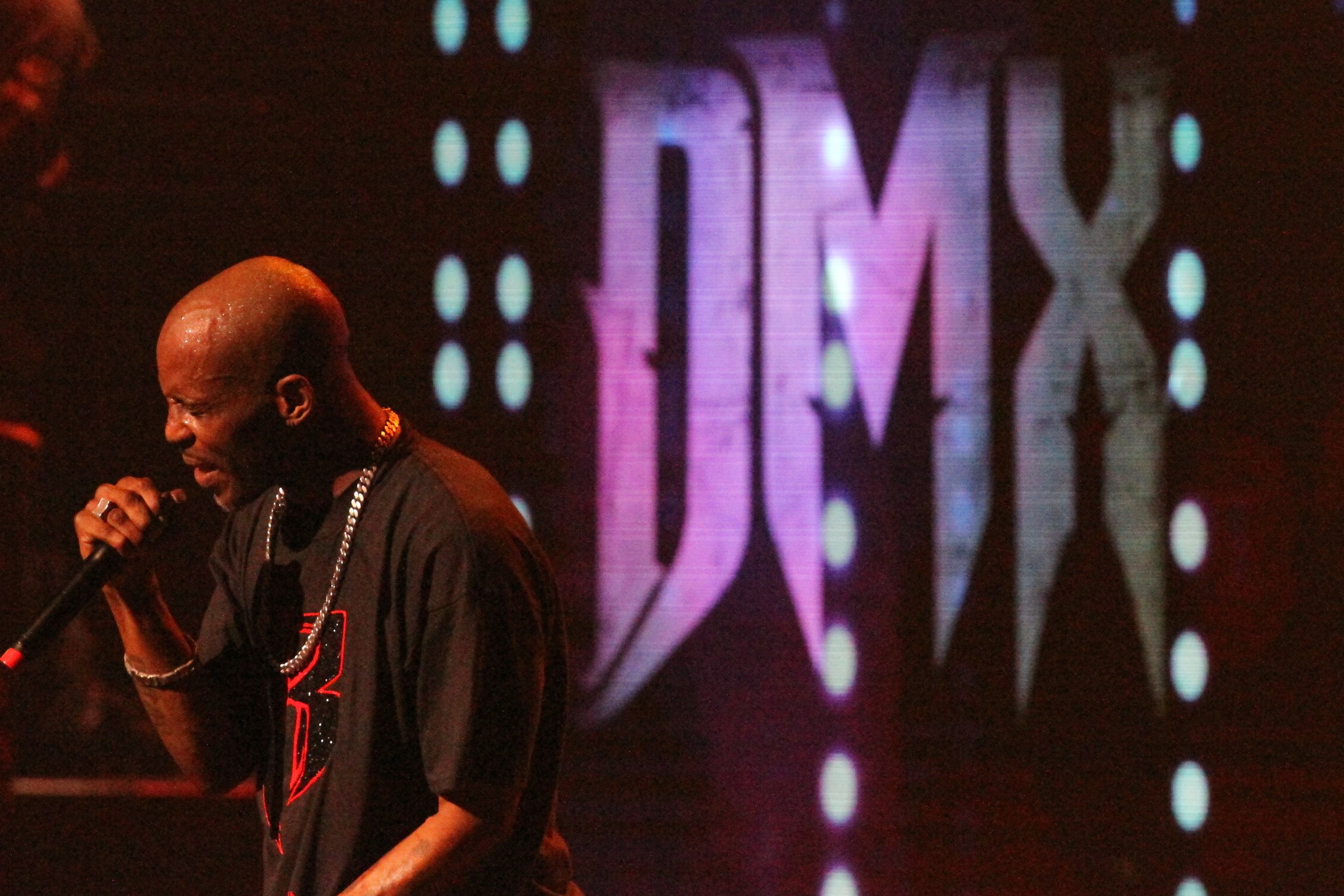
After being comatose for a week, hip hop legend DMX was taken off life-support Friday, April 9, and subsequently passed away. He was hospitalized April 2 after suffering “a catastrophic cardiac arrest” at home, which medics attributed to a drug overdose.
“We are deeply saddened to announce today that our loved one, DMX, birth name Earl Simmons, passed away at 50 years old at White Plains Hospital with his family by his side after being placed on life-support for the past few days,” his family’s statement read.
The stunning news set social media ablaze, with supporters expressing condolences.
“Even though you had battles you TOUCHED so many through your MUSIC and when you would PRAY so many people FELT THAT! This is heavy for the HipHop family but your LEGACY LIVES & YOUR SPIRIT,” Missy Elliot tweeted.
Born Dec. 18, 1970 in Mount Vernon, later moving to Yonkers, Arnett Simmons’ only child reportedly endured beatings from her, and spent much of his youth in group homes or juvenile detention centers. His tormented past and frustrations fueled his creativity as he unabashedly infused his pain into his art, channeling it and sharing it freely via his unrelentingly aggressive rhymes. His music often painted honest reflections of personal struggles, religion, violence and redemption.
Upon the mid-’90s passing of Tupac Shakur & Biggie Smalls, DMX emerged as one of hip hop’s most popular and influential artists by the end of the decade, selling millions of records. From September 1996 through January 1998 DMX was featured on Mase’s “24 Hrs. to Live,” The LOX’s “Money, Power & Respect,” and LL Cool J’s “4, 3, 2, 1,” prior to releasing two multiplatinum albums in 1998: “It’s Dark and Hell Is Hot” and “Flesh of My Flesh, Blood of My Blood.”
DMX dominated the Billboard charts for the next several years, featuring his unique style, including realistic reenacted dog barks/snarls. He’s the initial artist whose first five albums ranked #1 on the Billboard chart, with each selling multi-platinum.
He performed at Woodstock 1999, on Jay-Z’s “Hard Knock Life” and “Survival of the Illest” tours, and acted in movies “Belly” (1998), “Romeo Must Die” (2000) and “Exit Wounds” (2001).
After some live performances he’d often offer a prayer.
“It damn-near brings me to tears every night because I get nothing but love. It’s like I’m taking them to church,” he told the Source in 1999. “I just love ’em to death. I can’t even explain it. And I’m not going to take them to the wrong place.”
His family was most appreciative of the support.
“Earl was a warrior who fought till the very end. He loved his family with all of his heart and we cherish the times we spent with him,” their statement continued. “Earl’s music inspired countless fans across the world and his iconic legacy will live on forever. We appreciate all of the love and support during this incredibly difficult time.”
In his 2002 memoir, “E.A.R.L.: The Autobiography of DMX,” he mentions overcoming a traumatic childhood, hunger, substance abuse, repeated arrests, similarly to his recording “Slippin’.”
DMX often intertwined street scenery with personal tragedies while creating timeless classics. He reflected life’s realities of coming of age during NYC’s torrent crack epidemic, yet also could create head-bangers.
The father of 15 regularly worked with inner-city youths.
“He had the biggest heart, returning to CV to visit staff, celebrate birthdays and bring gifts for some of the kids,” read Children’s Village’s statement. “He used his talent and larger-than-life personality to give back to the people and places that impacted him.”
Their remembrance included a DMX quote which reads like his epitaph: “I know I may have done some bad things, but I’m not a bad person.”
Rumors that DMX’s death was caused by taking the COVID-19 vaccine days prior to his heart attack are unfounded. A candlelight vigil honoring DMX’s legacy was conducted Wednesday evening at Mt. Vernon’s 4th Street Park.
A 21 bark salute is planned for his funeral; the date is unknown at press time.


